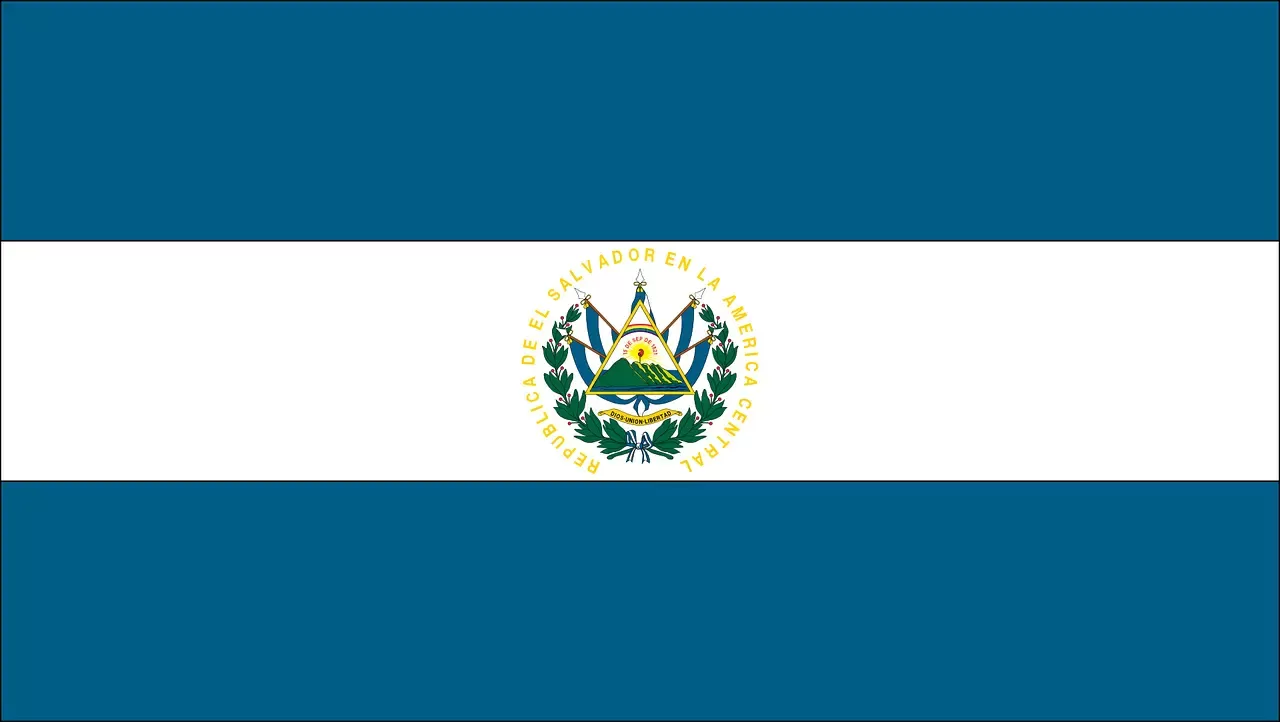Recognizing that investment migration has become necessary is only the first step, question is – where to start with it? When circumstances shift from comfortable to concerning, the instinct to act quickly can override the need to act correctly. This impulse, while understandable, transforms what should be strategic positioning into reactive scrambling.
Investment migration requires methodical planning, expert guidance, and careful execution. The stakes are high: a single misstep can close doors for years, waste substantial capital, and leave families more vulnerable than before. Success demands understanding that this process extends far beyond writing checks and filling forms.
The following framework provides a systematic approach to navigating investment migration, ensuring that decisions align with long-term objectives while avoiding the pitfalls that trap the unprepared.
Step 1: Secure Expert Advisory From the Beginning
Investment migration stands apart from traditional financial decisions due to its complexity, permanence, and cross-border implications. The consequences of poor advice extend far beyond financial loss. Incorrect structuring can trigger tax obligations across multiple jurisdictions. Inadequate due diligence preparation can result in application rejections that follow applicants for years. Most critically, certain program rejections create cascading effects that automatically disqualify candidates from related programs.
Consider the Caribbean citizenship by investment landscape: rejection from one program often triggers automatic disqualification from others due to information-sharing agreements between governments. An applicant denied by St. Kitts and Nevis may find doors closed in Antigua and Barbuda, Dominica, Grenada, and St. Lucia without additional disclosure requirements and explanations that complicate future applications.
Expert advisors navigate these interconnected risks by conducting thorough pre-application assessments, identifying potential red flags before they become application killers, and structuring approaches that maximize approval probability while preserving future options. They understand which jurisdictions maintain strict due diligence standards, which programs complement each other, and which combinations create conflicts.
Professional advisory encompasses multiple specializations that individual applicants cannot replicate through self-research. Immigration attorneys understand program requirements and application procedures. International tax specialists identify optimization opportunities while ensuring compliance across jurisdictions. Wealth structuring experts design frameworks that protect assets while satisfying program investment requirements. Due diligence specialists prepare comprehensive documentation packages that address potential concerns before government reviewers raise them.
The advisory selection process itself requires careful consideration. Advisors should demonstrate specific experience with target jurisdictions, maintain direct relationships with government agencies, and provide transparent fee structures that account for the full scope of services required.
Firms with extensive track records, such as NTL Trust with over 30 years of experience in international structuring and migration, understand the nuances that separate successful applications from costly rejections. Advisors who promise unrealistic timelines, guarantee approvals, or operate with minimal due diligence create more risk than value.
Quality advisory services also extend beyond application approval. Expert advisors help clients understand ongoing obligations, compliance requirements, and opportunities for program optimization as circumstances change. They provide guidance on maintaining program benefits, accessing ancillary services, and integrating multiple residency or citizenship programs into comprehensive wealth strategies.
The investment through proper advisory pays dividends throughout the entire process and beyond. Experienced advisors often identify cost-saving opportunities, tax optimization strategies, and program combinations that more than offset their fees. More importantly, they prevent mistakes that could prove impossible to correct.
Step 2: Define Clear Objectives and Assess True Financial Capacity
Investment migration serves different purposes for different families, and program selection depends entirely on understanding specific objectives. Some seek tax optimization, others require enhanced mobility, while many prioritize family security or business expansion opportunities. Without clear objective definition, applicants often select programs that fail to deliver desired benefits or miss opportunities that better align with their goals.
Objective clarity requires honest assessment of current limitations and future aspirations. Families seeking educational opportunities for children need programs that provide access to quality universities and favorable student visa policies. Business owners requiring market access benefit from citizenship or residency that facilitates company formation, banking relationships, and regulatory compliance in target markets. High-net-worth individuals focused on tax optimization need jurisdictions with favorable tax treaties, territorial taxation systems, or exemptions for foreign-sourced income.
Professional advisors play crucial roles in objective refinement by helping clients understand program capabilities and limitations. Many applicants assume that citizenship automatically provides unlimited residence rights, only to discover that certain programs require minimal physical presence or limit access to social services. Others expect immediate tax benefits without understanding that tax optimization often requires additional structuring, residency establishment, or changes to current tax status.
Financial capacity assessment extends far beyond minimum investment requirements. Programs typically require substantial additional expenses that catch unprepared applicants off guard. Government fees, due diligence costs, legal expenses, advisory fees, and ongoing compliance costs can add 20-50% to published investment minimums. Some programs require escrow deposits during application processing, while others demand proof of additional liquid assets beyond the investment amount.
Renewal requirements create ongoing financial obligations that many overlook during initial planning. Residency programs often require investment maintenance, property ownership continuation, or additional contributions for renewal. Even citizenship programs may have hidden ongoing costs through tax obligations, property maintenance requirements, or investment fund management fees.
Currency considerations add another layer of financial planning complexity. Investment amounts fixed in local currencies can fluctuate significantly during application processing, potentially requiring additional funds to meet minimum thresholds. Some programs allow payment in multiple currencies, while others require specific currency conversions that create exchange rate risks.
Advisors help clients develop comprehensive financial projections that account for all program costs, ongoing obligations, and potential additional expenses. They can identify programs with transparent fee structures, minimal ongoing costs, and predictable renewal requirements that align with client budgets and preferences.
Step 3: Research Jurisdictional and Program Options Systematically
Investment migration options span dozens of countries offering hundreds of different programs, each with unique requirements, benefits, timelines, and restrictions. Systematic research requires understanding program categories, investment structures, and qualification criteria while evaluating how different options align with established objectives.
CBI programs provide the highest level of benefits but typically require larger investments and longer processing times. Caribbean programs offer relatively quick processing and favorable tax structures but may not be the right fit for everyone. European programs provide EU access and strong passport benefits but often require larger investments and more complex qualification processes. Pacific programs can offer unique banking and business advantages but may have limited international mobility depending on where someone wants to go.
Residency by investment programs provide stepping stones toward citizenship while offering immediate benefits like residence rights, business opportunities, and sometimes tax advantages. Golden visa programs in Latvia and Greece provide EU access with relatively straightforward qualification requirements. Latin American programs offer Mercosur access and favorable tax treatment with modest investment requirements. Asian programs provide business advantages and access to growing markets but may require more substantial investments.
Investment structures vary significantly across programs and affect both qualification requirements and ongoing obligations. Real estate investments provide tangible assets but may limit liquidity and require property management. Government fund contributions offer simplicity but provide no investment return. Business investments can generate returns but require active management and job creation commitments. Some programs allow combinations of investment types, while others require specific allocations.
Due diligence standards represent critical research areas that many applicants underestimate. Programs with lenient due diligence may process applications quickly but can face international pressure that affects program stability. Strict due diligence programs may require extensive documentation and longer processing but typically provide more stable, internationally respected outcomes.
Experienced advisors maintain current knowledge of program changes, processing trends, and government policies that affect application success. They understand which programs complement client objectives, which require specific structuring approaches, and which combinations create optimal outcomes. This expertise proves invaluable given that program requirements, investment minimums, and processing procedures change regularly.
Research should also encompass program stability and long-term viability. Some programs face political pressure, international scrutiny, or changes in government that affect their continuation. Others have proven track records of stability and positive international relationships that suggest long-term viability.
Step 4: Plan for Family Dynamics and Perpetual Wealth Protection
Investment migration decisions affect entire families across multiple generations, making family planning integration essential for maximizing program benefits. Successful implementation requires understanding how programs accommodate spouses, children, and future generations while addressing education needs, inheritance planning, and wealth protection strategies.
Most programs include spouses and minor children in primary applications, but requirements for adult children, parents, or other dependents vary significantly. Some programs allow nearly unlimited family inclusion, while others impose age restrictions, dependency requirements, or additional fees for each family member. Understanding these parameters helps families structure applications appropriately and plan for future family additions.
Educational considerations influence program selection for families with children. European programs provide access to EU universities with favorable tuition rates and admission requirements. Caribbean programs often maintain relationships with international schools and universities that facilitate educational transitions. Some jurisdictions offer specific educational benefits, scholarships, or simplified admission processes for citizens or residents.
Citizenship programs that provide intergenerational benefits create lasting value for families. Programs offering citizenship by descent allow children born abroad to maintain citizenship, creating permanent benefits that extend to future generations. These provisions prove particularly valuable for families with international mobility requirements or those seeking to maintain options for their children.
Wealth protection planning requires coordination between investment migration and broader financial structures. Trusts, offshore banking arrangements, and international investment vehicles can complement residency or citizenship programs to create comprehensive wealth protection frameworks. However, integration requires careful planning to ensure that structures support rather than conflict with program requirements.
Professional advisors coordinate between immigration and wealth planning specialists to ensure optimal integration. They help families understand how different programs affect inheritance planning, tax obligations, and asset protection strategies. This coordination proves essential given that migration decisions can trigger significant changes in tax status, reporting requirements, and wealth structuring opportunities.
Banking considerations add practical complexity to family planning. Different jurisdictions maintain varying banking standards, account opening requirements, and international transfer capabilities. Families need banking solutions that support their business activities, investment requirements, and daily financial needs across multiple jurisdictions.
Step 5: Plan for Strategic Integration and Program Optimization
Successful investment migration extends beyond single program participation to encompass comprehensive international positioning through multiple residencies, citizenship options, and supporting structures. Strategic integration involves understanding how different programs complement each other, creating natural progression paths, and implementing flag theory principles that optimize tax, legal, and business outcomes.
Flag theory suggests distributing different life aspects across multiple jurisdictions to minimize risk and maximize benefits. Citizens might hold passports from countries with strong international mobility, maintain tax residency in favorable tax jurisdictions, conduct business through entities in business-friendly locations, and bank in stable, privacy-focused financial centers. Investment migration provides tools for implementing these strategies systematically.
Program combinations often create synergistic benefits that exceed individual program advantages. European residency combined with Caribbean citizenship provides more global access alongside favorable tax treatment. Latin American residency paired with Pacific citizenship offers Mercosur business access and international banking benefits. Multiple European residencies can provide flexibility as political and economic conditions change across the region.
Natural progression planning involves understanding how initial programs can lead to enhanced opportunities over time. Many residency programs provide pathways to citizenship after specific time frames or requirements. Temporary residencies can become permanent, permanent residencies can lead to citizenship, and citizenship can provide platforms for accessing additional programs in related regions.
Banking integration requires coordination across multiple jurisdictions to support international business activities, investment requirements, and personal financial needs. Different banks excel in different areas: European banks for privacy and stability, Paraguayan banks for Latam market access, and Caribbean banks for favorable regulatory environments. Professional advisors help coordinate banking relationships that support comprehensive migration strategies.
Property investments across multiple jurisdictions create diversification benefits while supporting residency requirements. Real estate in different markets provides exposure to various economies, currencies, and appreciation potential while fulfilling program investment obligations. Property ownership also facilitates integration into local communities and provides a practical basis for international activities.
Business structure optimization involves coordinating corporate entities, tax planning, and operational activities across multiple jurisdictions. Different locations offer advantages for specific business activities: holding companies in favorable treaty jurisdictions, operational entities in business-friendly environments, and intellectual property holding in specialized locations. Investment migration provides access to these opportunities while meeting program requirements.
Ongoing optimization requires regularly reviewing changing circumstances, new opportunities, and evolving program benefits. Tax laws change, new programs become available, and personal circumstances evolve to create optimization opportunities. Professional advisors provide ongoing guidance to ensure that migration strategies continue supporting client objectives as conditions change.
Moving Forward with Confidence
Investment migration represents a significant undertaking that requires careful planning, expert guidance, and systematic execution. The framework outlined above provides a roadmap for navigating this complex process while avoiding common pitfalls that compromise outcomes.
Success depends on understanding that investment migration extends far beyond program selection and application submission. It requires comprehensive planning that integrates family needs, financial objectives, and long-term strategic goals into cohesive approaches that provide lasting benefits.
The investment in proper planning and professional guidance pays dividends throughout the process and for years afterward. Families that approach investment migration systematically position themselves for success in an uncertain world while creating opportunities and protections that serve multiple generations.
At NTL Trust, we guide families through each step of this process, providing the expertise and coordination necessary to achieve optimal outcomes while avoiding the costly mistakes that compromise unprepared applicants. The journey toward enhanced global mobility and security begins with understanding where you are and where you want to go. From there, proper guidance makes all the difference.
To know more, contact NTL Trust today.















